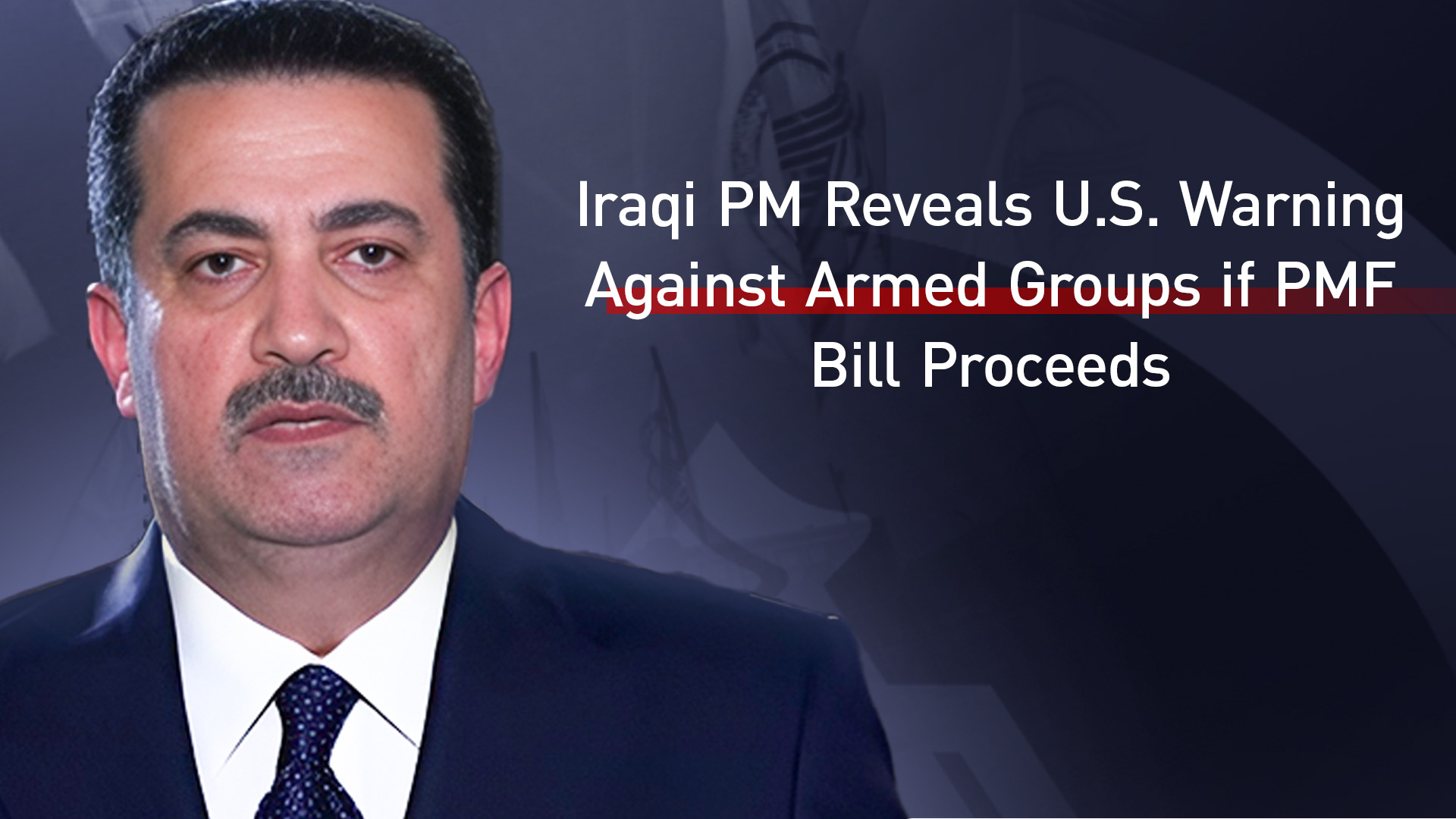Iraqi PM Reveals U.S. Warning Against Armed Groups if PMF Bill Proceeds
The Coordination Framework, which convened on August 22, ultimately decided to suspend the bill. Instead of pushing for new legislation, the government plans to issue guidelines aimed at addressing obstacles stemming from the 2016 law that originally formalized the PMF.

ERBIL (Kurdistan24) – Iraqi Prime Minister Mohammed Shia al-Sudani has told members of the Coordination Framework that Washington warned Baghdad it would target 16 bases of armed groups in Baghdad and other provinces if parliament proceeds with the Popular Mobilization Forces (PMF) bill, Iraqi media reported.
The Coordination Framework, which convened on August 22, ultimately decided to suspend the bill. Instead of pushing for new legislation, the government plans to issue guidelines aimed at addressing obstacles stemming from the 2016 law that originally formalized the PMF.
The Iraqi parliament also released its weekly agenda, which notably did not include the PMF bill, suggesting it will not be discussed during any of the three scheduled sessions this week.
Political sensitivities
Haider Barzanji, a political analyst, told Kurdistan24 that the bill has not been formally withdrawn and remains in parliament, but the timing of the debate is seen as unsuitable.
“The unity of Iraq and its communities is one of the priorities of the Coordination Framework,” Barzanji said, adding that non-Shiite parties would likely boycott any discussion.
He also denied suggestions of new threats from Washington against the “Resistance Front,” saying such warnings are not new but reflect regional sensitivities.
U.S. pressure and Shiite divisions
Several Iraqi politicians acknowledged that Shiite parties recognize the seriousness of U.S. pressure, which influenced the decision to suspend the bill to avoid a direct confrontation with Washington.
However, the move has sparked frustration among parts of the Shiite base, as many PMF members and their families had hoped for legislation that would strengthen the group’s legal and financial standing.
Mohammed Shamari, a member of parliament’s Security and Defense Committee, accused foreign actors of deliberately creating obstacles to prevent the passage of the bill.
For his part, MP Jawad Yasari pointed out that divisions within Shiite ranks, coupled with opposition from the Kurdish and Sunni blocs, played a significant role in halting the legislation.
